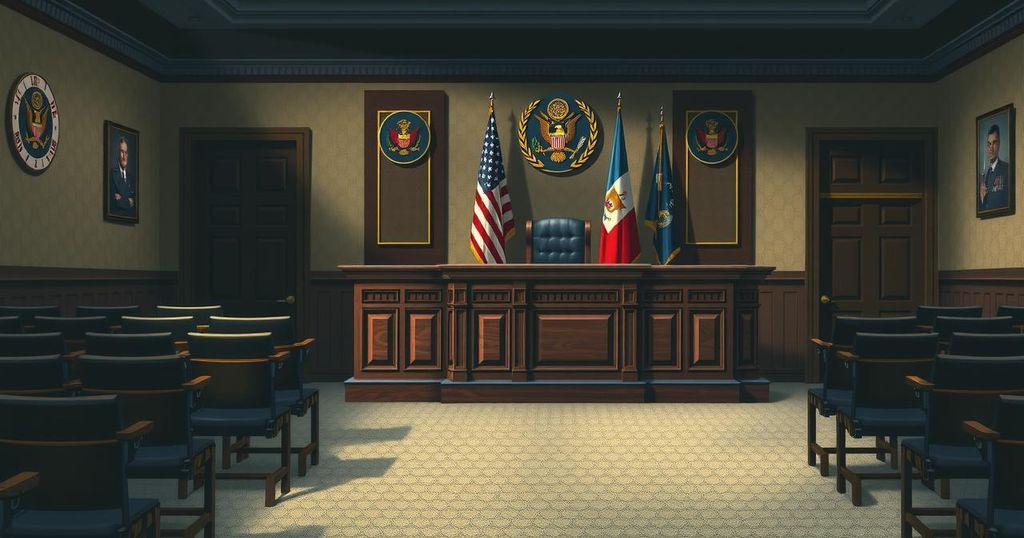Officials from Kabila’s party were questioned by a military prosecutor amid tensions from Rwanda-backed rebels. The officials denied links to armed groups and emphasized a commitment to the state, amidst accusations from President Tshisekedi regarding Kabila’s support for rebels. The situation highlights ongoing political instability in the Democratic Republic of Congo.
In Kinshasa, Democratic Republic of Congo, officials from former President Joseph Kabila’s party were summoned by a military prosecutor amidst escalating tensions related to Rwanda-backed rebel advances in the east. The purpose of this summons remains unclear, as stated by Jean Mbuyu, the officials’ lawyer and Kabila’s ex-security adviser. After the questioning, one official revealed that they were called in regarding comments made by party vice president Aubin Minaku on February 26th.
During his earlier statements, Minaku expressed, “The chief said, ‘we must be ready for anything,’” referring to Kabila. He emphasized that this declaration indicates a shift from silence and clandestine actions to more overt responses. Marcel Bombamba, another lawyer for the group, confirmed that no formal charges were pressed against the officials.
Amid these developments, President Felix Tshisekedi has accused Kabila of backing the M23 rebels, who have recently captured significant cities in eastern Congo. Kabila has sought dialogue with opposition leaders and civil society regarding the nation’s political future, amid criticisms of Tshisekedi’s handling of the M23 situation.
The military prosecutor’s office dispatched around 10 invitation letters to Kabila’s People’s Party for Reconstruction and Democracy; however, only three officials attended the questioning in Kinshasa. These included Minaku, Emmanuel Ramazani Shadary, a former interior minister, and Ferdinand Kambare, the party’s national executive secretary. To dispel doubts, Minaku stated they responded to the invitations, asserting they have no ties with M23 or any armed groups.
He articulated their approach as republican, indicating loyalty to the state, and declared, “We clearly denounced any illicit presence of foreign forces.” The recent activities of M23 represent a significant escalation in a protracted conflict linked to historical tensions following Rwanda’s 1994 genocide and the struggle for Congo’s substantial mineral wealth. Denying allegations, Rwanda claims its military actions against the Congolese army and hostile militias are defensive.
In summary, officials from former President Joseph Kabila’s party faced questioning by a military prosecutor amid rising tensions due to rebel activities in east Congo. They denied associations with any armed groups and maintained their commitment to the state. The situation underscores the ongoing political instability in the region, exacerbated by allegations against Kabila and the backdrop of a protracted conflict fueled by both historical and resource-driven factors.
Original Source: www.zimlive.com




